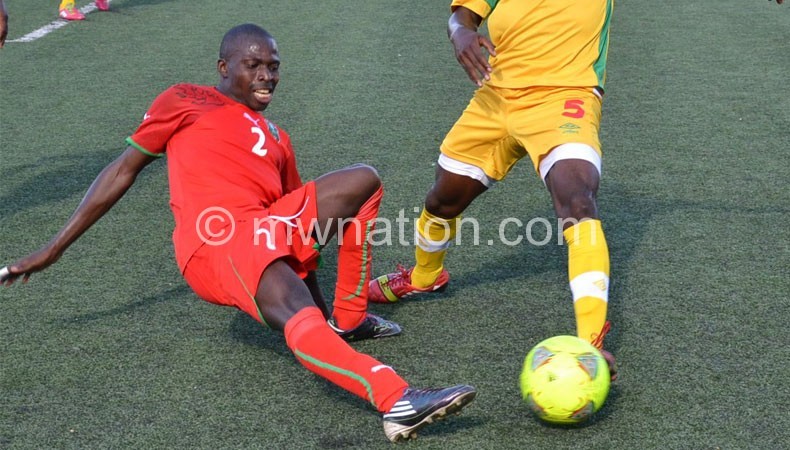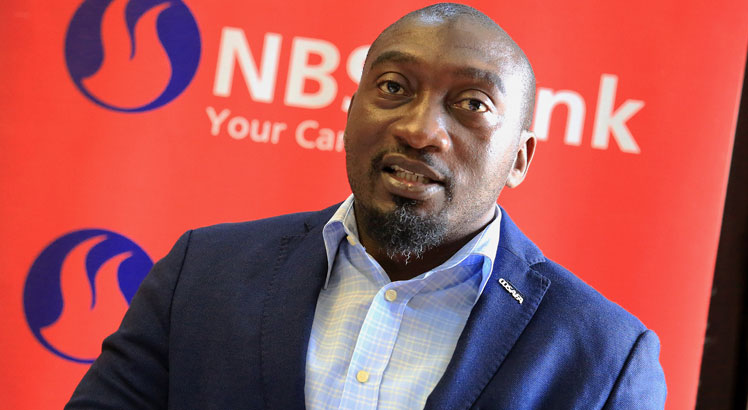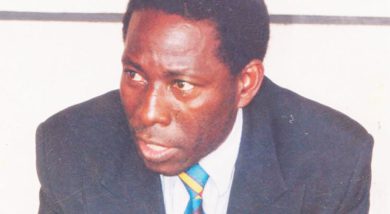Flames prone to match-fixing

Meagre perks make the Flames prone to match-fixing and there is, therefore, need to be on guard, refereeing great Bester Kalombo has warned.
“We are a more serious target than others comparatively. We are not offering more to the players. Their bonuses are the lowest in the region.
“If we beat certain teams and get to the qualification stage of big tournaments such as the Africa Cup of Nations (Afcon) and the World Cup, we will always be the target,” Kalombo explained in an exclusive interview.
There has been no official reported case of match-fixing involving the Flames with current and retired players Esau Kanyenda, James Sangala and Maupo Msowoya ruling out the possibility of the national team ever being enticed by match- fixers.
“During my career, I heard reports of match-fixing elsewhere. Of course, there was a guy who used to pose as an agent and watched many of our games. When I later learnt that he was linked to match-fixing allegations in Zimbabwe, I suspected that he might have been following us for the same reason,” said Sangala on Friday.
He admitted that Malawian players are not exposed and sensitised to match-fixing hence agreed with Kalombo that poor game bonuses could be a source of temptation.
Last year, convicted match-fixer Wilson Raj Perumal of Malaysia was linked to match-fixing allegations after he organised friendly matches for Zimbabwe in Asia, leading to the ban of many Warriors players and coaches who connived to lose games.
Flames players pocket K30 000 for a win ($80) and K15 000 ($40) for a draw.
Zambia and Zimbabwe national team players earn between $500 (about K215 000) and $1 500 (about K645 000) each for wins.
Mindful that Malawi could be a match-fixers’ soft target, Fifa has through Interpol, trained National Referees Committee chairperson and police officer Patrick Kapanga to fight the vice.
“Match-fixing is a global problem. In football, it is growing every day. The targets are the referees, players and club owners. They coax top strikers to, for example, fake illnesses and even promise them better paying jobs and moves to top foreign teams,” noted Kapanga, who is on a countrywide anti-match-fixing civic education campaign.
The pioneer CAF refereeing manager Kalombo, who retired last year after an eight-year service in Egypt, said he was talking from experience having played a role in forewarning local authorities about Malawi-bound match-fixers.
“In the last qualifiers for the World Cup and the Nations Cup, we were the target because we nearly qualified. There were a group of them who possibly might have entered Malawi coming from Zimbabwe, but we warned the authorities and fortunately, they just disappeared,” Kalombo explained.
Match-fixers working for illegal rich betting syndicates target poorly remunerated teams, sometimes offering each more than $10 000 (about K4.3m).
Coaches can be corrupted to field weaker sides, with goalkeepers palm-oiled to concede goals and strikers to miss.
In the Super League, the Anti-Corruption Bureau (ACB) has prosecuted some club officials over the same and Moyale Barracks officials verbally implicated a referee in match-fixing last year. Sulom also cleared Silver Strikers after they were implicated in match-fixing around 2010.
Last September, the Flames were three games away from their first-ever World Cup appearance, but lost 2-0 in Nigeria when a win could have seen Malawi face Ethiopia over two legs of the final qualifying round on the road to 2014 World Cup in Brazil.
Malawi was also two games away from securing a berth at the 2013 Africa Cup of Nations held in South Africa, but lost 2-0 in Ghana then 1-0 at Civo Stadium in 2012.
Perhaps the most heartbreaking was a qualification race for the 2012 Nations Cup held in Gabon as the Flames, needing just a win against a Chad side they had always beaten, ended up drawing with them 2-2, thereby gifting qualification to Tunisia.
“The question is what are we doing? We need to do something. Players are the target just like referees. The issue of integrity comes in. Fifa has trained people like Kapanga to train others. He is able to identify match-fixers and report,” noted Kalombo.
FAM chief executive officer Suzgo Nyirenda admitted that low perks might tempt national team players and “we need to put mechanisms that can deal with match-fixing and also work hand in hand with the ACB.”
Perumal is cited in the Fifa report on the South African Football Association as the face of Football4U, a front for the worldwide betting syndicate that allegedly fixed the South African national team’s matches and games in Zimbabwe, ahead of the 2010 Fifa World Cup. Perumal is serving a three-year jail term for bribing players in the Finnish league in February 2011.





